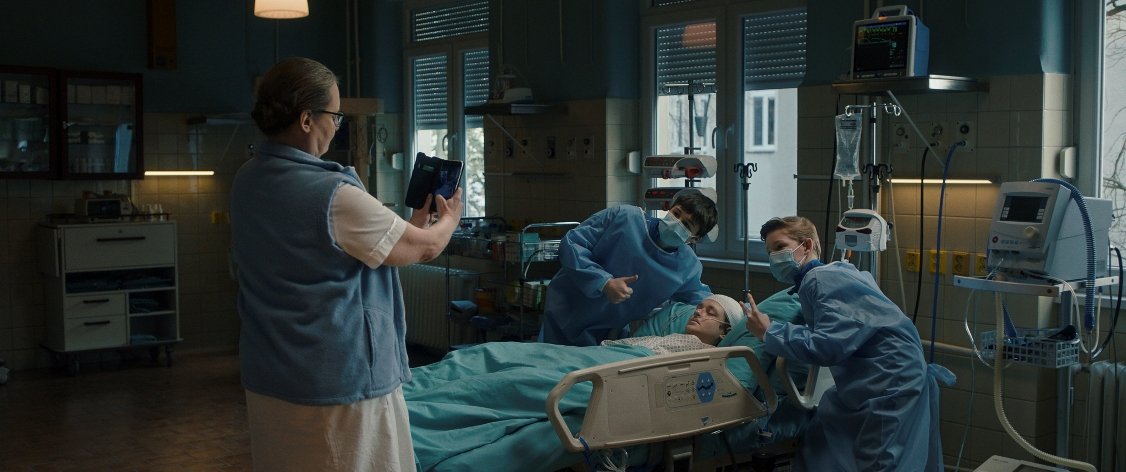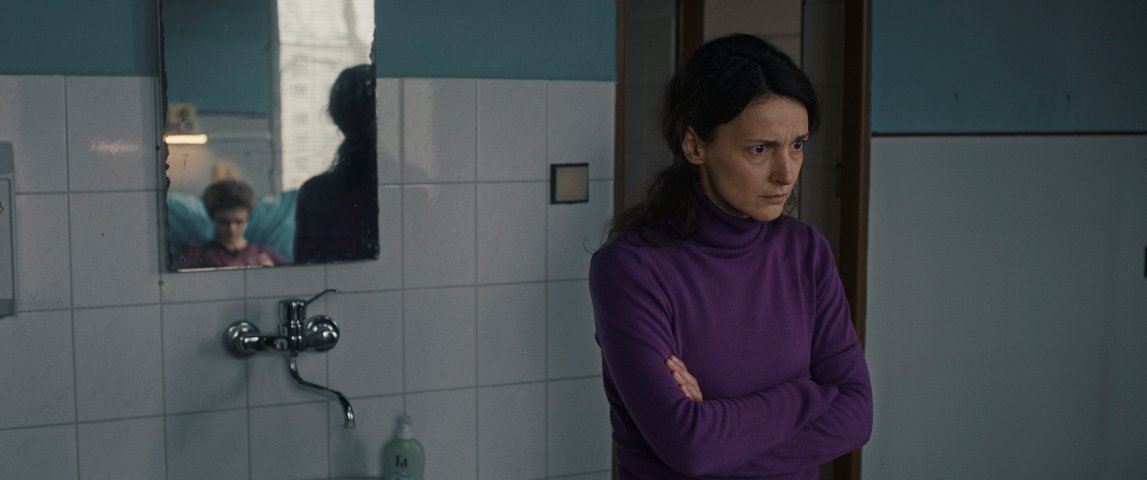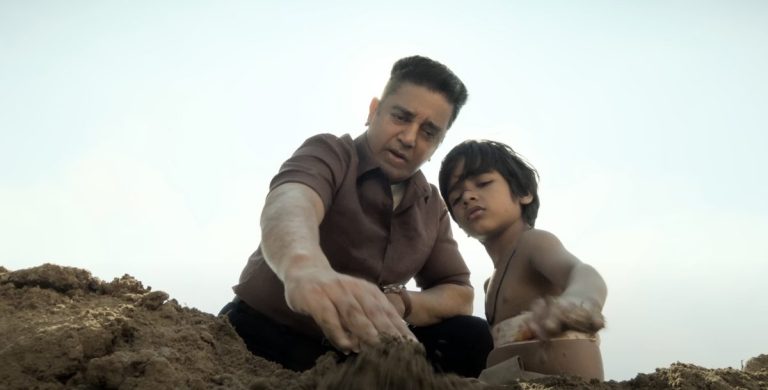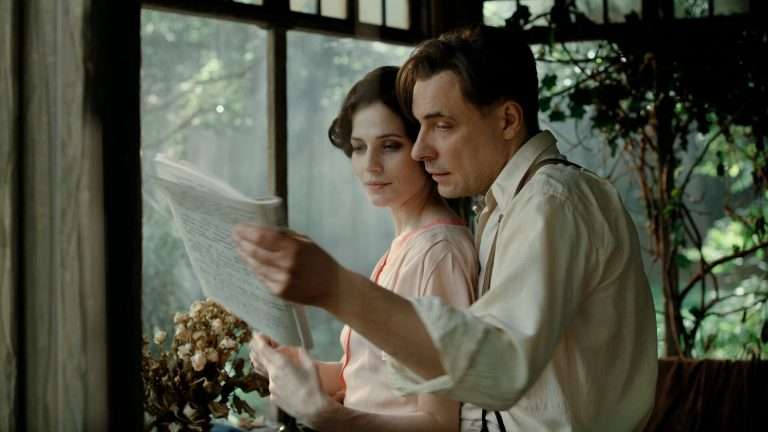Some lies can provoke a snowball effect and impact society in unbelievable ways. Moreover, in an increasingly polarized world, every piece of information or incident brings in multiple actors who manipulate truth or lies to fit their own narrative. Michal Blasko’s tense social drama Victim (original title: ‘Obet’, 2022) shows how a caring mother is unwittingly caught in a political tussle. Similar to the Romanian New Wave cinema, director Blasko strives for a dash of realism that draws on the aesthetics of documentary filmmaking. In fact, the visual approach doesn’t draw attention to itself. The minimalist visual design rather nudges us to follow the good-hearted yet worn-out mother as she grapples with the different emotional, political, and social dimensions of her problem.
Written by Jakub Medvecky, Victim is based on a true incident. However, the director Blasko isn’t interested in making an outright political drama. The narrative unfolds from the perspective of a single mother, Irina Zyrchenko (Vita Smachelyuk). And the filmmaker simply observes the points where the individual – her morality & conscience – is swept away by the larger sociopolitical problems. Interestingly, Victim opens with a scene that foreshadows how Irina is going to get caught in a situation that’s out of her control.
A bus has broken down which could cause a delay of 4-5 hrs in reaching her destination. Irina anxiously takes out her belongings from the bus, She approaches every car caught in the traffic jam, asking if they could give her a lift to the Czech border town. She says her son is in the hospital and has to immediately reach him. We don’t see how she reaches the hospital. But Victim’s opening scene establishes a temporary setback and Irina’s prowess in navigating her way to the son in order to protect him. More setbacks are coming her way.
Irina’s son, Igor (Gleb Kuchuk) is injured in the head. The doctor’s initial report says that he is assaulted. An investigator questions the dazed Igor. In response, the teenager murmurs about three unknown assailants. Irina and Igor’s identity immediately evokes a lot of speculations regarding the assault. Irina and her son are Ukrainians living in the Czech Republic. She is a single mother, She works as a housekeeper and plans to open a hair salon with a friend. Her Czech citizenship was denied once due to a minor technicality. But Irina might soon get her citizenship and she plans to settle down in the country.
Irina was in Ukraine to get some papers for her citizenship application when the incident occurred. She has left Igor alone in the apartment complex. Police and media believe that social prejudice could be the motivation behind the crime. The mother and son allegedly live in a bad neighborhood. Immediately, the suspicion falls upon members of another minority community: the Roma or Romani people (the derogatory ‘Gypsies’ is also used to address them). A Romani single mother lives in the flat above Irina with her three sons. The woman’s elder son is held in custody in relation to the case.
Igor is a competitive gymnast. But since he has lost a kidney due to the injury, his dreams of becoming a gymnast are over. Subsequently, an activist named Michal Selsky, who hails from the same neighborhood, meets Irina at the hospital. He subtly pleads with the mother to take this to the media. He firmly believes that local police wouldn’t do the necessary when it comes to minority communities. Furthermore, Michal launches a political campaign, using public anger to broadcast his outfit’s political agenda. On the other hand, the town mayor meets Irina and promises her money and other rewards if she stays quiet. And that’s when Irina learns the devastating truth from Igor: it was just a stupid accident. The boy was just hanging by the handrail to show off to the girl he has a crush on. Unfortunately, he slipped and fell down.
The authorities would give her hell if the stupid lie comes out. On the other hand, news of Igor’s alleged assault is causing political mayhem in the small town. Irina is also troubled by her conscience that an innocent Romani boy – her neighbor’s son – is suffering inside prison. Nevertheless, the mother’s foremost concern is to protect and save her son. Meanwhile, Irina becomes the target of unseen harassers, who ring her doorbell in the middle of the night and break her car glasses.
Director Blasko and cinematographer Adam Mach go for a bleaker mise-en-scene, where handheld camerawork is often coupled with long, static takes. Such technique allows us to immerse in the scene with the characters, and closely observe their feelings. Victim is structured in a way that gradually emphasizes behavioral reactions to the moral and sociopolitical problems of modern-day Europe. The film never gets overtly political. But Victim carefully shows how Irina – who never remains an active player in the narrative – is forced to carry the burden of things that were never under her control. She is already on the sidelines and what’s more troubling is that she is pitted against other victims of social prejudice.
Blasko and scriptwriter Medvecky also give us ample space to understand Irina, even while she is confronting one moral dilemma after another. We witness quite a few of Irina’s compassionate gestures. Yet the fateful decision of hers can possibly do more harm to her family as well as the society at large. At the same time, considering her position in society, does she have any other choice? Blasko could have ended Victim in a relatively sensational manner. But the film ends with a quiet moment of pensive sadness. Irina has gained the relevant papers which bestow upon her a new identity. However, now that Irina is part of a majority society does that change anything? There’s only a gnawing sense of emptiness, where there should be feelings of accomplishment.
Overall, Victim (91 minutes) is a multi-layered and starkly rendered social drama that utilizes a mother’s moral dilemma to deal with themes like guilt, social discrimination, and xenophobia.







![Mard Ko Dard Nahi Hota Netflix [2019] Review – A Stylish yet inertly dull action spectacle](https://79468c92.delivery.rocketcdn.me/wp-content/uploads/2019/05/Mard-Ko-Dard-Nahi-Hota-Netflix-768x485.jpg)

![You Shall Not Sleep [2018]: ‘Tribeca’ Review](https://79468c92.delivery.rocketcdn.me/wp-content/uploads/2018/04/You_Shall_Not_Sleep_HOF_Tribeca-768x432.png)
![Beats Netflix [2019] Review: A Decent Film about an Underdog-Prodigy](https://79468c92.delivery.rocketcdn.me/wp-content/uploads/2019/07/Beats-Netflix-768x333.jpeg)